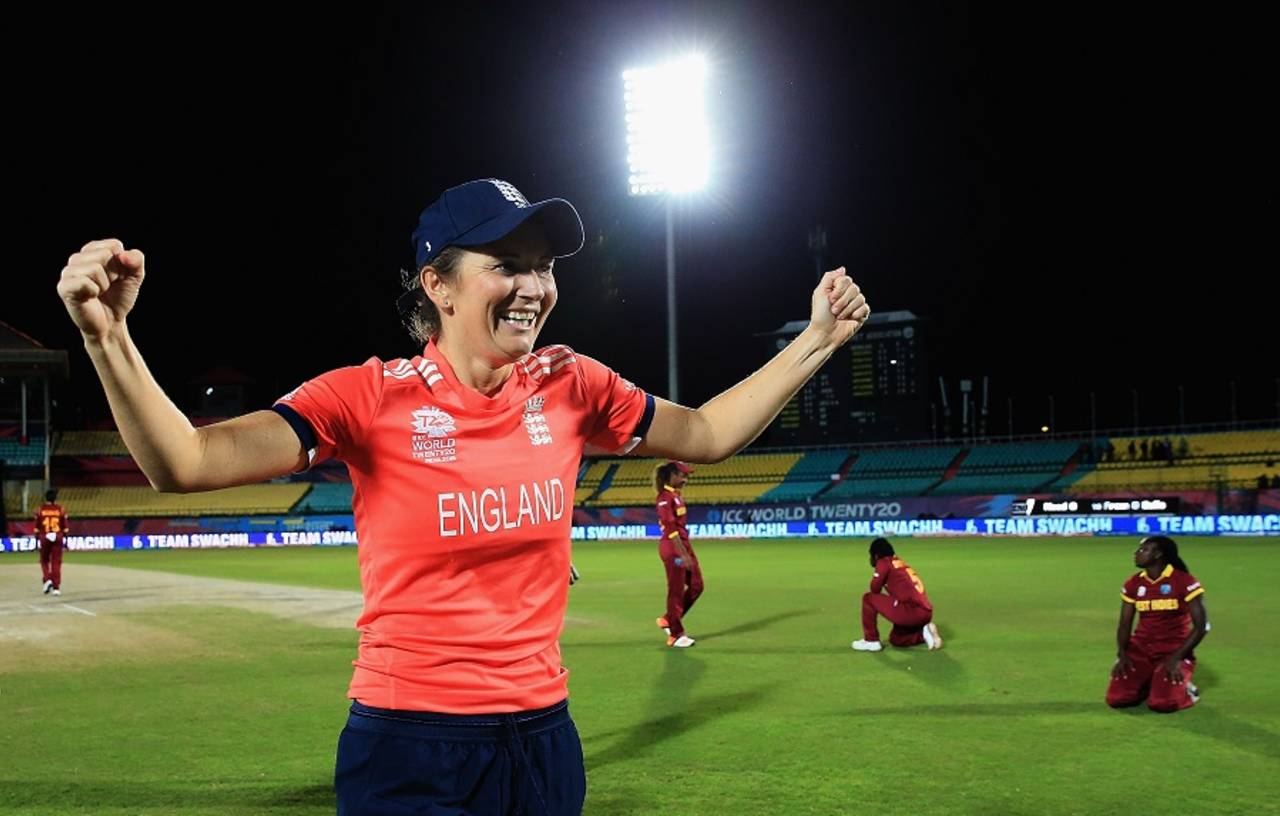Where is the line between journalist and fan? It's a question I found myself musing upon a few weeks ago in a small hospitality box at Lord's - the hospitality box where
Charlotte Edwards announced, after 20 years as one of the best female cricketers in the world, that she was
retiring from international duty.
Sometimes it is an easy distinction to maintain. You do an interview, write it up, send it off, it gets published and then you move on. But sometimes it is more difficult.
My own apprenticeship into the world of the press box involved a tent on the edge of the boundary at Wormsley cricket ground, reporting on an England-Australia Test match. In the space of four days I had to unlearn what my dad had drilled into me for the previous 25 years - that Australian cricketers are The Enemy. Apparently, too, it is not the Done Thing to cheer loudly when England take a wicket if you have a press pass round your neck.
Why not? The point is that as journalists we are expected to strive for neutrality as far as we can. Have you ever sat around moping when your favourite batsman got out, or when your team was miserably defeated? Try writing a match report while moping. It doesn't work very well. To be truly effective, there are times when you have to remain detached, have to analyse everything that is going on in front of you, not just how "your team" are doing.
This is the ideal. The problem is that cricket journalism involves human beings. We have feelings. We form attachments. And we all started out as fans.
In that press conference at Lord's a few weeks ago, as Edwards struggled through tears to tell us what her two decades as an England cricketer had meant to her, I found it hard to articulate questions about the whys and wherefores of the situation. I was shedding a few tears myself.
Some cricketers matter more than others, on a personal level. Perhaps I did not quite realise how much until that moment, but Lottie mattered to me.
She has been the type of person who would do a ten-hour round trip in her car just to be at a primary school assembly, because she realised how powerful a role model she could be to young girls
It was not just that when I started researching the history of women's cricket almost a decade ago, her name quickly emerged as the greatest female cricketer England has ever produced. It was not just that I could see, perhaps more clearly than anyone else, how significantly Edwards had raised the profile of her sport in a decade at its helm. One day in the British Library's newspaper archive told me that.
It was more than that. When a player has been at the forefront of women's cricket for two decades - and when those two decades coincide with your own journey into awareness of the women's game, from starting to follow England Women to getting paid to writing about them - that player will always mean a lot to you. It is not simply that it feels like the end of an era when they retire. It is that you can't quite imagine cricket without them.
Has Edwards influenced my writing? Without a doubt. For much of her time representing England, cricket was a labour of love, and she always went the extra mile. Across her career she has been the type of person who would do a ten-hour round trip in her car just to be at a primary school assembly, because she realised how powerful a role model she could be to young girls. She cared deeply about the women's game. She made me care too.
Should journalists seek detachment? The ability to take a step back is important. But just as Edwards always, as player and as captain, wore her heart on her sleeve, I have always written from the heart.
Maybe I never stopped being a fan after all.
A very different England women's team is taking shape at the moment. They have a
new captain in Heather Knight. They have
lost in Lydia Greenway the best fielder the women's game has ever seen. And, for the next series at least, they will most likely be without Sarah Taylor. Suddenly this does not feel like the England team that I knew before I made that so-called transition from fan into journalist.
That is not necessarily a bad thing. Perhaps it will make it easier to write about them with a cool head and "neutral" eyes. In her recent book on the England men's team in the 1990s,
Following On, sportswriter Emma John discusses her teenage obsession with the side: "I was in love with the England cricket team… [cricket] was a proving ground, a marker of personal identity, a bonding mechanism, a channeller of adolescent energies and a toxic waste area for dumping nuclear angst." Yet, she concludes, "I will never feel as committed to another sporting team as I was to England in the nineties, and that's OK. That's probably healthy."
When England go out to face Pakistan later this month, without Charlotte Edwards for the first time in two decades, there will be something nagging at me, reminding me that she is no longer there. I will have to put my head down, push those feelings away, and write my match report, because that is my job.
But healthy or not, I still think that I will care. I still think that I will be writing from the heart.
I'm not sure I know any other way.
Raf Nicholson is an England supporter, a feminist, and has recently completed a doctoral thesis on the history of women's cricket. @RafNicholson
